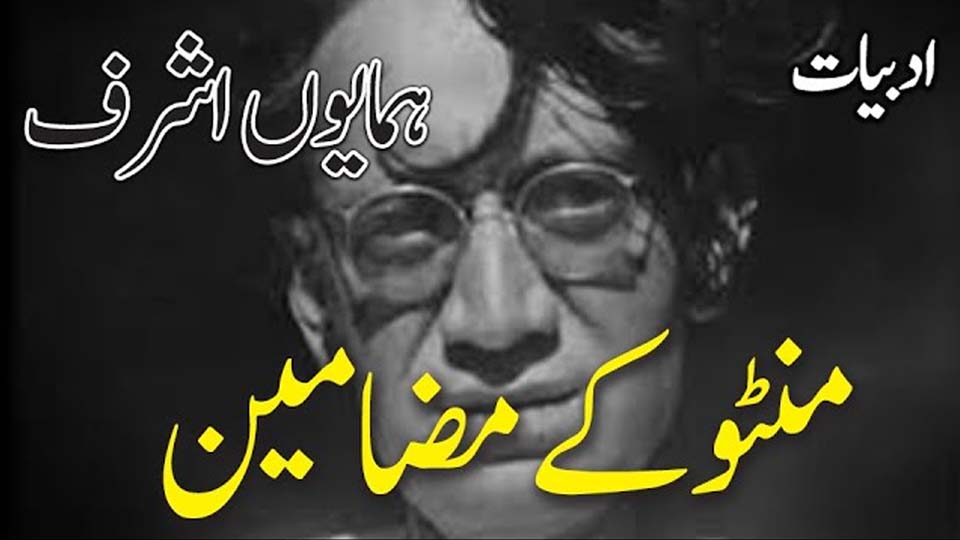Saadat Hasan Manto is one of the most prominent and controversial figures in Urdu literature. Known for his fearless and realistic portrayal of societal issues, Manto’s work resonates with readers worldwide. This blog explores the life, works, and enduring legacy of this literary genius, focusing on how his sharp satire and deep observations shed light on the complexities of human nature and society.
Early Life and Literary Journey
Born in 1912, Saadat Hasan Manto emerged as a groundbreaking short story writer, playwright, and essayist. He began his literary career when the Indian subcontinent was undergoing significant social and political upheaval. Manto’s early works reflect his keen interest in addressing the societal challenges of his era, such as class divisions, gender inequalities, and the hypocrisy of cultural norms.
The Dual Collections of Essays: A Reflection of Two Eras
Saadat Hasan Manto’s essay collections, published in 1942 and 1954, offer an insightful glimpse into his evolving perspective. The first collection, published under the patronage of the Urdu Academy in Lahore, captures the fervour of India’s freedom movement. Optimism and hope permeate these essays, reflecting the aspirations of a society fighting for independence.

In contrast, the second collection, titled Talakh, Tursh, Sheerin (Bitter, Sour, Sweet), was shaped by the traumatic events following the partition of India in 1947. The stark differences in tone and content between these collections highlight how Manto’s worldview shifted from hope to disillusionment. His biting satire became sharper as he depicted the horrors of partition and the hypocrisy of those who perpetuated communal violence.
Fearless Exploration of Taboo Topics
Manto’s writings stand out for their unflinching approach to taboo subjects. His stories often delved into themes such as sexuality, societal hypocrisy, and the plight of marginalized communities. These topics were considered bold and controversial, earning him both acclaim and criticism. Many of his works were labelled obscene, leading to multiple court trials. However, Manto staunchly defended his work, asserting that he merely portrayed the realities of society rather than glorifying vulgarity.
Legacy of a Social Critic
Through his piercing satire, Manto sought to expose the duality of human behavior. He believed that people should appear as they truly are, rejecting the facade of a double life. This unwavering commitment to authenticity made him a target of criticism but also cemented his place as a literary icon. Even today, Manto’s works remain relevant, offering profound insights into human nature and societal injustices.
Saadat Hasan Manto in Popular Culture
The impact of Manto’s life and work extends beyond literature. His legacy has been immortalized in films, television dramas, and countless books that explore his complex personality and enduring relevance. For instance, films like Manto (2018) and several theatrical adaptations have brought his stories to a broader audience, further solidifying his place in cultural history.
Lessons from Manto’s Life
Manto’s life and works teach us the importance of speaking truth to power. His unwavering honesty, even in the face of adversity, inspires writers, artists, and activists to challenge societal norms and address uncomfortable truths. Manto’s bold voice reminds us that literature is a powerful tool for social change.
Conclusion
Saadat Hasan Manto remains a vital force in Urdu literature. His fearless exploration of societal issues, profound understanding of human nature, and sharp critique of hypocrisy make his works timeless. Whether addressing the horrors of partition or highlighting everyday injustices, Manto’s stories continue to resonate, urging readers to reflect on their own lives and the world around them. His legacy, undoubtedly, will endure for generations to come.
If you’re interested in reading this book, click the link below for a free download.
https://drive.google.com/file/d/1b_Yd2pX40f6I6icWfArHBXMzK3EeFWOc/view?usp=sharing
If you’d like to listen to this book in audio format, click the CONTACT button below to get in touch with the AwazeUrdu team to order the audiobook.
Contact us:You can also watch the same video on these social media platforms.
Facebook Rumbleسعادت حسن منٹو (1912-1955) اردو کے مشہور افسانہ نگار، ڈراما نویس، اور کہانی کار تھے۔ ان کا شمار بیسویں صدی کے اہم ترین اور متنازع ادیبوں میں ہوتا ہے۔ منٹو نے اپنی تحریروں کے ذریعے برصغیر کی سماجی، سیاسی، اور ثقافتی حقیقتوں کو بے باکی اور حقیقت پسندی کے ساتھ پیش کیا۔ ان کی تحریریں حقیقت پسندی، بے خوفی، اور معاشرتی مسائل پر گہری نظر کے لیے مشہور ہیں۔ وہ سماجی منافقت، طبقاتی فرق، جنسی موضوعات، اور انسانی فطرت کو کھل کر بیان کرتے تھے۔
ان کی زبان سادہ اور دل کو چھو لینے والی ہوتی تھی۔ ان کی کئی کہانیاں اپنے وقت کے لیے بہت جرات مندانہ سمجھی گئیں، جس کی وجہ سے انہیں فحاشی کے الزامات کا سامنا کرنا پڑا۔ ان پر کئی بار مقدمے چلے، لیکن انہوں نے ہمیشہ کہا کہ وہ معاشرتی حقیقت کو پیش کرتے ہیں، نہ کہ فحاشی۔۔ وہ آج بھی برصغیر کے ادب کا ایک اہم حصہ ہیں۔ ان کی تحریریں ہمیں انسانی فطرت، سماجی ناانصافی، اور تاریخ کے المیوں کو سمجھنے کا موقع فراہم کرتی ہیں۔
ان کی زندگی پر فلمیں اور ڈرامے بھی بنائے گئے۔اردوادب میں بھی ان کی شخصیت اور فن کےبارے میں کئی کتابیں لکھی گئیں ہیں،جن میں سے ایک وہ مضمون ہے،جس کا اقتباس اس ویڈیومیں پڑھ کرسنایاگیاہے۔
جناب ہمایوں اشرف کا یہ مضمون ادبی رسالہ سہہ ماہی”آئندہ”اپریل تاجون، 2006ء میں شائع ہوا۔
انہوں نےاس مضمون میں “منٹوکےمضامین” پر تبصرہ کیاگیاہے۔ ان کےمضامین کا پہلامجموعہ 1942ءمیں اردواکیڈمی،لاہورکےزیرِ اہتمام شائع ہواتھا۔ اوردوسرامجموعہ بنام تلخ، ترش، شیریں، قیامِ پاکستان کےبعد 1954ء میں شائع ہوا۔ ان دونوں مجموعوں کے خیالات اورطرزِتحریر میں واضح فرق ہے۔ پہلامجموعہ مرتب ہوتے وقت آزادی کی تحریک اپنےعروج پرتھی۔ جب کہ دوسرے مجموعے کی اشاعت کےوقت تقسیمِ ہند کےدلخراش واقعات وقوع پذیر ہوچکے تھے۔ لہٰذا منٹو کی تحریروں میں طنز کی کاٹ بڑھ گئی تھی۔
الغرض سعادت حسن منٹو کامعاشرے پرکیاجانےوالا طنز اب تک کارآمد ہے۔ وہصرف یہ چاہتے ہیں کہ لوگ جیسے اندر سے ہیں، باہرسے بھی ویسے ہی نظرآئیں اور دوغلی یادوہری زندگی بسرکرناچھوڑ دیں۔ اور ظاہر ہے کہ ہرشخص ایسانہیں ہوسکتا۔ اسی لئے منٹو کو اتنی زیادہ مخالفت کاسامنا کرناپڑا مگر ان کافن بہرحال زندہ رہےگا

